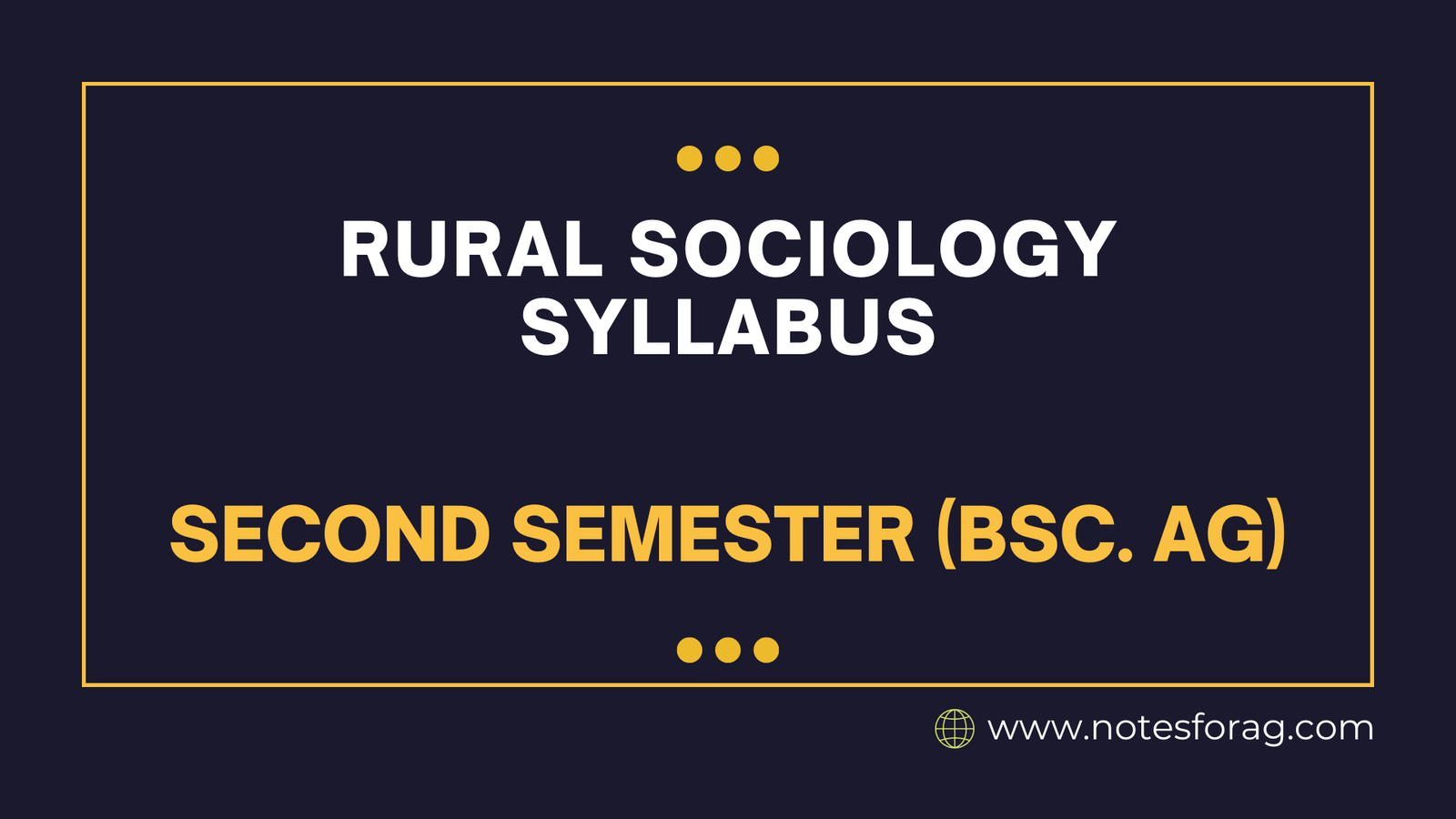| Course Code | EXT 101 |
| Course Title | Rural Sociology |
| Credit Hour | 3(2+1) |
| Full Marks | 75 |
| Theory | 50 |
| Practical | 25 |
Objectives
Upon the completion of this course, the students will understand the sociological concepts, theories, and their contribution and application in agriculture development and the field of agriculture extension education system.
Syllabus of Rural Sociology in Bsc. Agriculture
Sociology and rural sociology- differences and similarities in meanings and concepts, contribution to agriculture extension, social institutions, social processes, norms, values, socialization and deviance, social cultures, customs and traditions social structure and social systems, some important sociological theories, social changes process, impact and factors of change, social groups, formation and behavioral change, social festivals, rituals and social heritage and their relationship to social change and development.
Course Outline
A. Theory
B. Practical
| S.N | Topic / Chapter Name | No. of Lectures |
| 1 | Visit of rural community and identify social research issue | 1 |
| 2 | Study on urbanization as a phenomenon influencing rural areas | 2 |
| 3 | Learn about contemporary agriculture and process of globalization | 2 |
| 4 | Proposal development on study of social research 4.1 Techniques of data collection (observation and document studying) 4.2 Techniques of data collection (Focus group discussion, interview) 4.3 Questionnaire design: types and process 4.4 Data editing, coding, entry and analysis | 7 |
| 5 | Report writing | 2 |
| 6 | Presentation of report | 1 |
| Total | 15 |
Reference
- Bhusan, V. and D. R. Sachdeva 2000. An Introduction to Sociology. Kitab Mahal, Allahabad, India.
- Chitamber, J. B. 1973. Introductory Rural Sociology. Wiley Eastern Limited, India.
- Gisbert, P. 2010. Fundamental of Sociology. New Delhi: Orient Blackswan.
- Gupta, Dipankar, 1994. Social Stratification. Oxford University Press, Delhi.
- Harlambos and Holborn 2000. Sociology. London, Harper-Collins.
- Johnson, Harry M 1995. Sociology: A Systematic Introduction. New Delhi: Allied Publishers.
- Rao, S.C. N. 2005. Sociology: Principles of Sociology with and Introduction to Sociological Thought. S. Chand and Company Ltd.: New Delhi.

